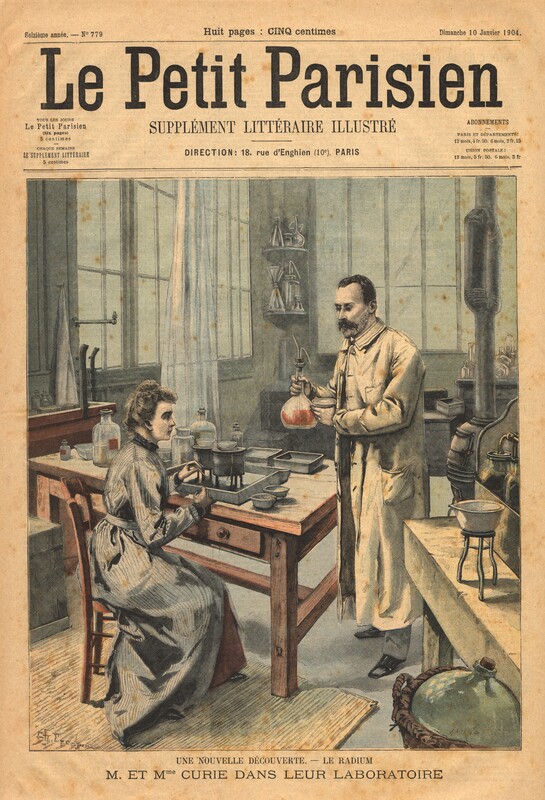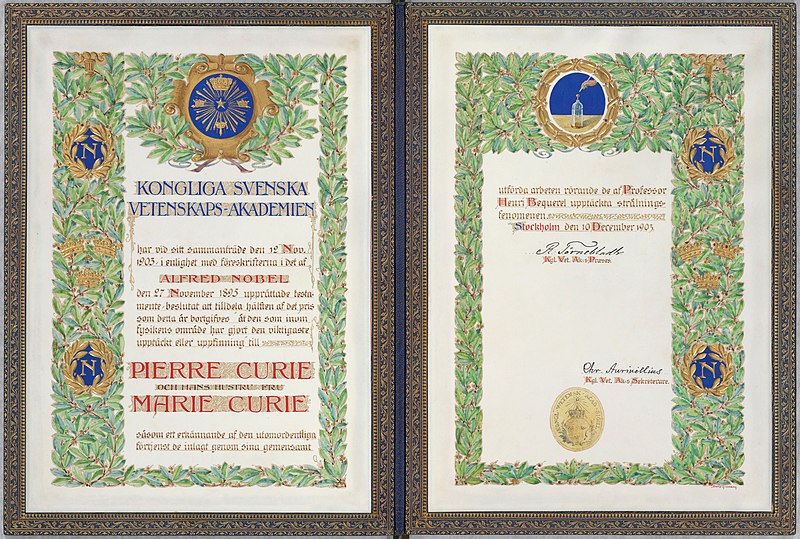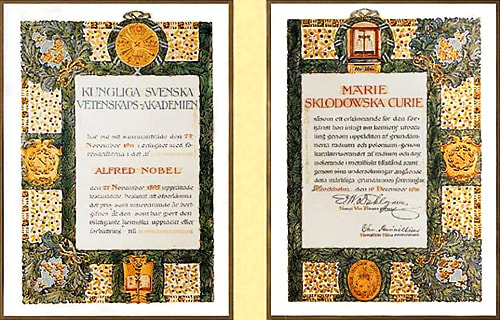
A cover of “Le Petit Parisien” from 1904 with a colored illustration of Marie and Pierre Currie [Source: The National Library of Medicine]
Marie Curie won two Nobel Prizes in two different fields, Physics and Chemistry.
Nobel Prize medals depict Alfred Nobel (1833-1896). © Nobel Media. Photo: Alexander Mahmoud

A cover of “Le Petit Parisien” from 1904 with a colored illustration of Marie and Pierre Currie [Source: The National Library of Medicine]
Marie Curie won two Nobel Prizes in two different fields, Physics and Chemistry.
In 1903, Marie received the Nobel Prize in Physics, along with Pierre and Henri Becquerel, "for their study into radiation phenomena."

Marie Curie – Nobel diploma. NobelPrize.org. Nobel Media AB 2019. Mon. 30 Dec 2019

Nobel diploma. NobelPrize.org. Nobel Media AB 2019.
The second Nobel Prize in 1911 was for Chemistry. This time the award was solely gifted to Marie in recognition for her work on radioactivity and the isolation of the two new elements she had discovered: radium and polonium.
I am one of those who think like Nobel, that humanity will draw more good than evil from new discoveries."
— Marie Curie
For the first award, Pierre had to insist in writing that Marie be recognized for her work, as initially only the two men had been nominated.
By the time of the second award, the Langevin scandal had made the headlines in France, and the Nobel Committee advised Marie not to come to Sweden to accept the award, as they feared bad press. Marie responded the award was for her scientific contributions, not her personal life. She attended the ceremony and gave a speech.
Marie Curie remains to this day, the only person to have won the award in two different fields.